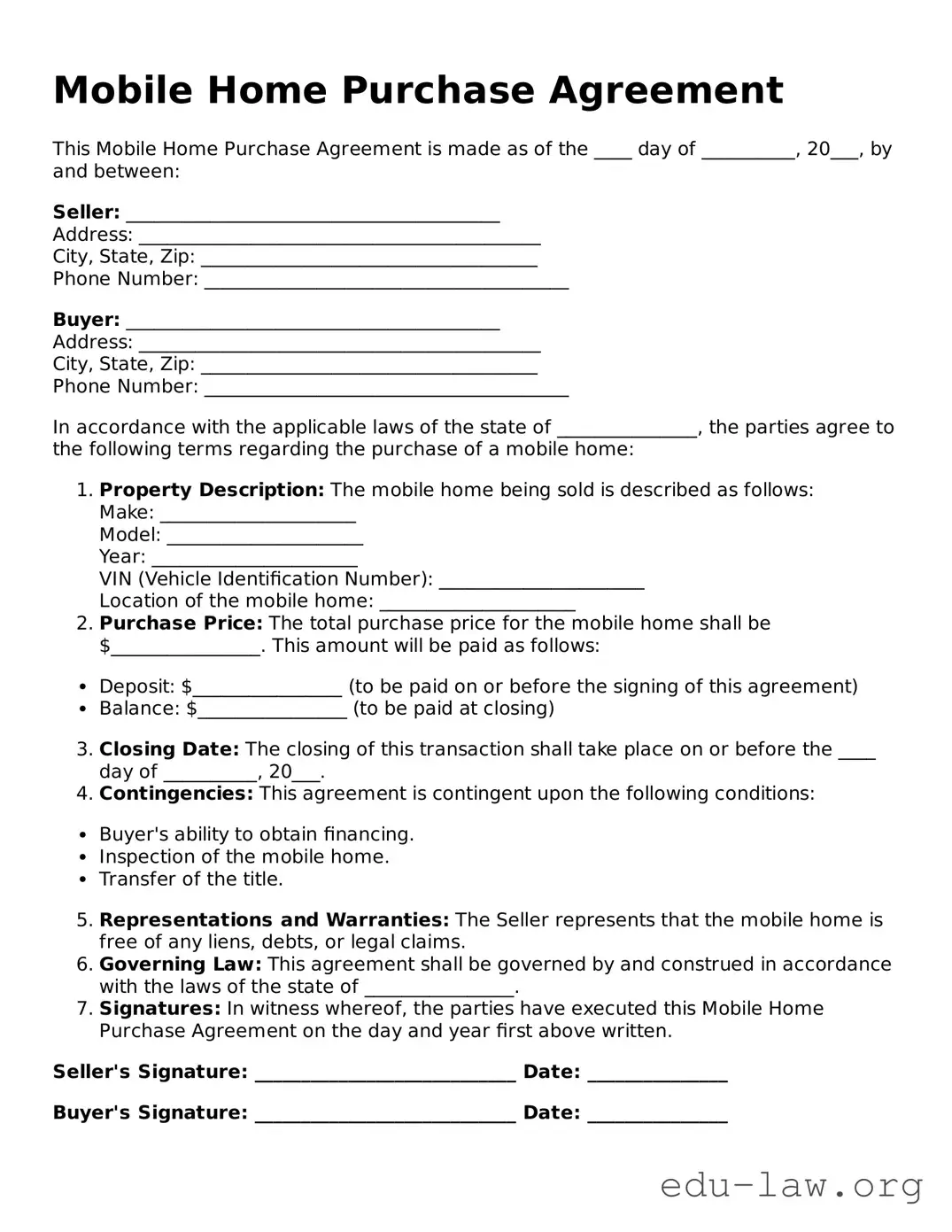Mobile Home Purchase Agreement
This Mobile Home Purchase Agreement is made as of the ____ day of __________, 20___, by and between:
Seller: ________________________________________
Address: ___________________________________________
City, State, Zip: ____________________________________
Phone Number: _______________________________________
Buyer: ________________________________________
Address: ___________________________________________
City, State, Zip: ____________________________________
Phone Number: _______________________________________
In accordance with the applicable laws of the state of _______________, the parties agree to the following terms regarding the purchase of a mobile home:
- Property Description: The mobile home being sold is described as follows:
Make: _____________________
Model: _____________________
Year: ______________________
VIN (Vehicle Identification Number): ______________________
Location of the mobile home: _____________________
- Purchase Price: The total purchase price for the mobile home shall be $________________. This amount will be paid as follows:
- Deposit: $________________ (to be paid on or before the signing of this agreement)
- Balance: $________________ (to be paid at closing)
- Closing Date: The closing of this transaction shall take place on or before the ____ day of __________, 20___.
- Contingencies: This agreement is contingent upon the following conditions:
- Buyer's ability to obtain financing.
- Inspection of the mobile home.
- Transfer of the title.
- Representations and Warranties: The Seller represents that the mobile home is free of any liens, debts, or legal claims.
- Governing Law: This agreement shall be governed by and construed in accordance with the laws of the state of ________________.
- Signatures: In witness whereof, the parties have executed this Mobile Home Purchase Agreement on the day and year first above written.
Seller's Signature: ____________________________ Date: _______________
Buyer's Signature: ____________________________ Date: _______________
